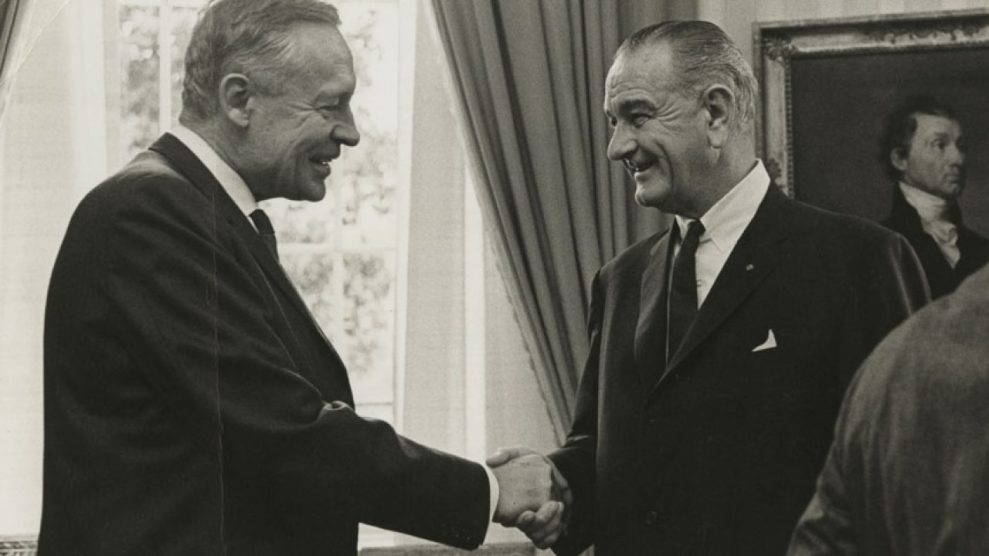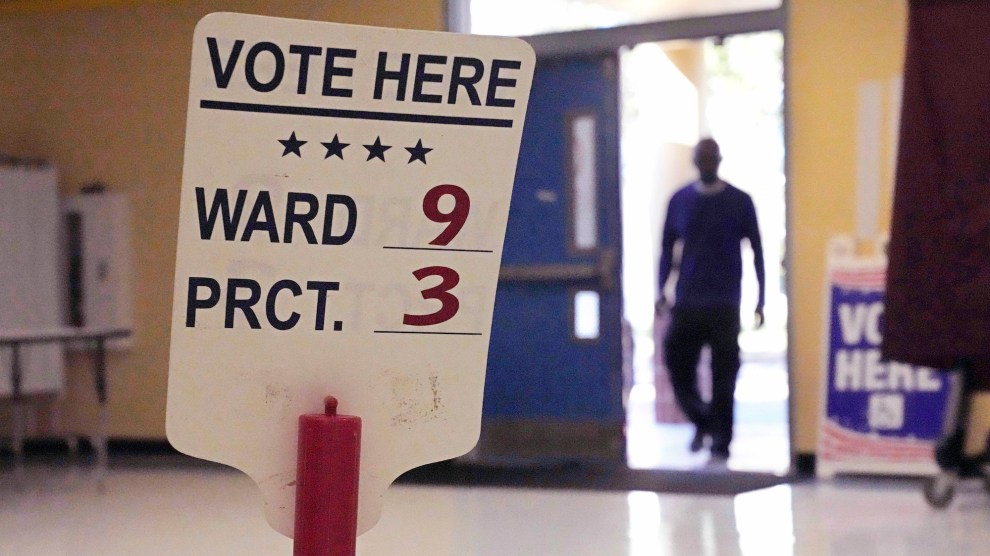
United States Representative Jamie Raskin appears before a US Senate Committee on the Budget hearing to examine Big Oil's evolving efforts to avoid accountability for climate change in the Hart Senate Office Building in Washington, DC.Rod Lamkey/CP/Zuma
This story was originally published by the Guardian and is reproduced here as part of the Climate Desk collaboration.
The fossil fuel industry spent decades sowing doubt about the dangers of burning oil and gas, experts and Democratic lawmakers testified on Capitol Hill on Wednesday.
The Senate budget committee held a hearing to review a report published on Tuesday with the House oversight and accountability committee that they said demonstrates the sector’s shift from explicit climate denial to a more sophisticated strategy of “deception, disinformation and doublespeak.”
“Big oil had to evolve from denial to duplicity,” said Sheldon Whitehouse, the Rhode Island Democrat, who chairs the Senate committee.
The revelations, based on hundreds of newly subpoenaed documents, illustrate how oil companies worked to greenwash their image while fighting climate policy behind the scenes.
“Time and again, the biggest oil and gas corporations say one thing for the purposes of public consumption but do something completely different to protect their profits,” Jamie Raskin, the ranking Democrat on the House oversight committee, testified. “Company officials will admit the terrifying reality of their business model behind closed doors but say something entirely different, false and soothing to the public.”
The findings build on years of investigative reporting and scholarly research showing that the sector was for decades aware of the dangers of the climate crisis, yet hid that from the public.
In the absence of decisive government action to curb planet-warming emissions, the impacts of the climate crisis have gotten worse, committee Democrats said. Several senators said the industry should have to pay damages for fueling the crisis.
“In my view, it should not be state government or the federal government having to pick up the bill,” said the Vermont senator Bernie Sanders. “I think it’s time to ask the people who caused that problem, who lied about that situation, to pick up the bill.”
But budget committee Republicans pushed back on the very premise of the hearing. Chuck Grassley, the Iowa senator and the committee’s top Republican, said it is “undeniable that…fossil fuels are critical to our energy security.”
Wisconsin senator Ron Johnson, meanwhile, claimed that CO2 is a “plant food,” implying it has positive aspects. It’s a talking point that has long been promoted by fossil fuel industry-funded think tanks that aim to sow doubt about climate change.
“I’m not a climate-change denier, I’m just not a climate-change alarmist,” Johnson added.
Kert Davies, director of special investigations at the Center for Climate Integrity, who has long studied climate denial, noted his rhetoric was exemplary of “old school” denial tactics that have long fallen out of favor in the industry.
“The plant food thing was a popular talking point in the 1990s,” he said in an interview. “They’re falling back on these tropes…and that’s all they’ve got, because they have no other rebuttal to the findings about the deception campaigns.”
Perhaps the tensest moment of the morning’s hearing came when Louisiana senator John Kennedy questioned Geoffrey Supran, a University of Miami associate professor who studies fossil fuel industry messaging and whom the Senate committee Democrats had invited to testify.
The Republican senator attacked Supran for retweeting posts about the protest organization Climate Defiance, which recently accosted Joe Manchin, the centrist West Virginia Democratic senator who has well-documented financial interests in coal, and called him a “sick fuck.” (Supran says he did not retweet anything about the action and was not aware of it until the hearing.)
“Are you going to call me a sick fuck?” Kennedy asked.
In response, Supran said Kennedy’s comments were “characteristic” of the oil industry’s “propaganda techniques.”
“Among all the tactics that the fossil fuel interests have used over the decades to deny their products have caused global warming, one of the most common is character assassination,” Supran said in an interview after the hearing. “The idea is to attack the messenger rather than the message, because they don’t have a foot to stand on with the message.”
The Republicans’ messaging, Supran added, is an indication that though the industry has adopted new forms of “climate delay,” older forms of “climate denial are still alive and well in some cases.”
He said Kennedy’s questioning also points to the “influence of oil money on American politics,” adding that research shows representatives who fight climate policy get more money from fossil fuel companies. (Kennedy has accepted more than $1.5 million from the oil industry.)
Cities and states have filed a slew of lawsuits against big oil for alleged deception. Sharon Eubanks, who was lead counsel on behalf of the US in a successful 2005 lawsuit against big tobacco and was invited by the Democrats to testify, said the US could also reasonably take legal action against the oil industry.
In her testimony, Eubanks referenced a document called the Global Climate Science Communications Action Plan, nicknamed the “victory memo” by climate-denial researchers. Circulated by top oil and gas lobby group American Petroleum Institute in 1998, the document detailed a plan to undermine climate science and promote doubt and denial.
One prong of the plan, Davies noted, was targeting US representatives. “They’re explicitly targeted, and companies spent money on giving Congress propaganda,” he said. “They’re doing the industry’s work for them.”















